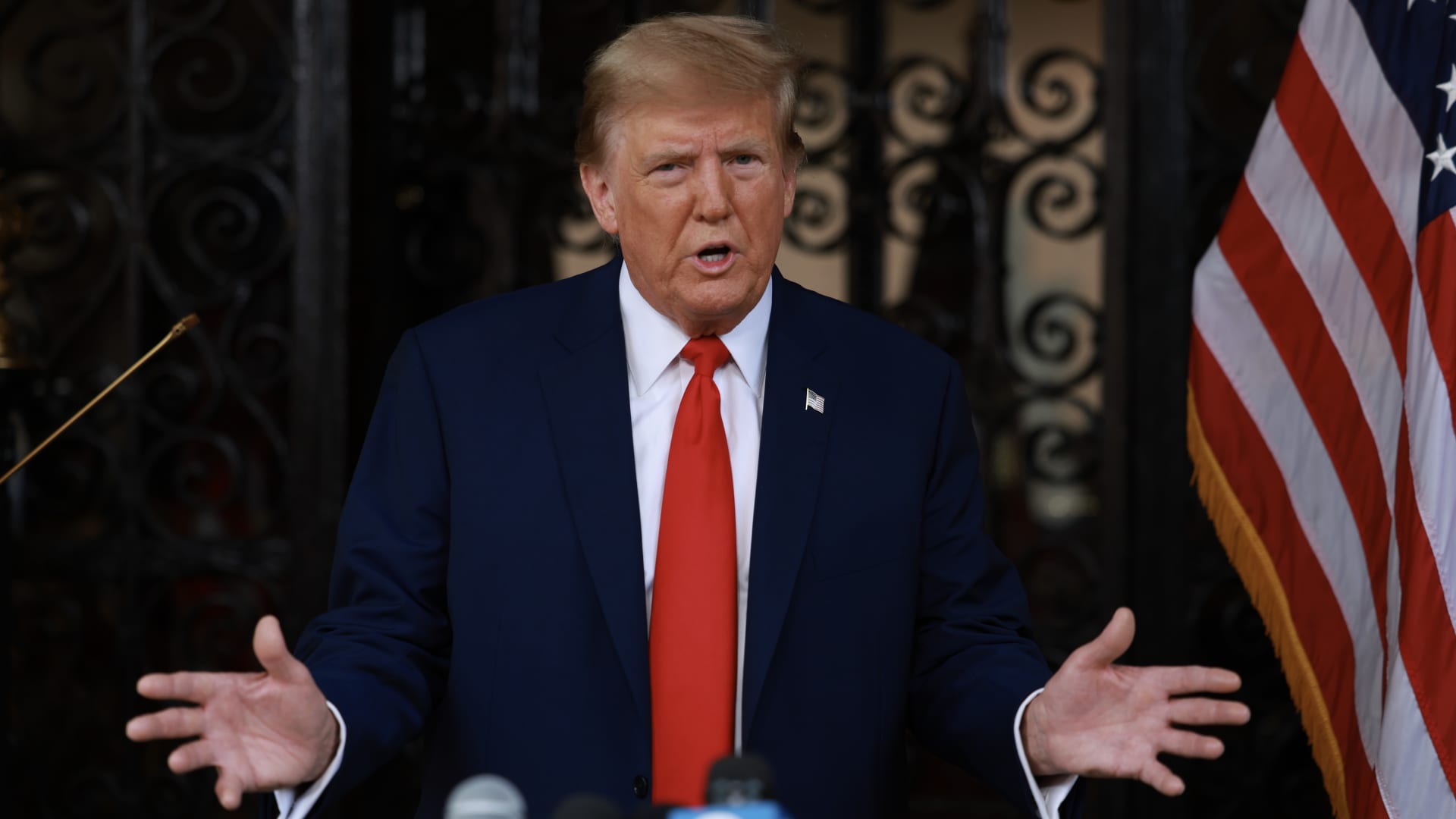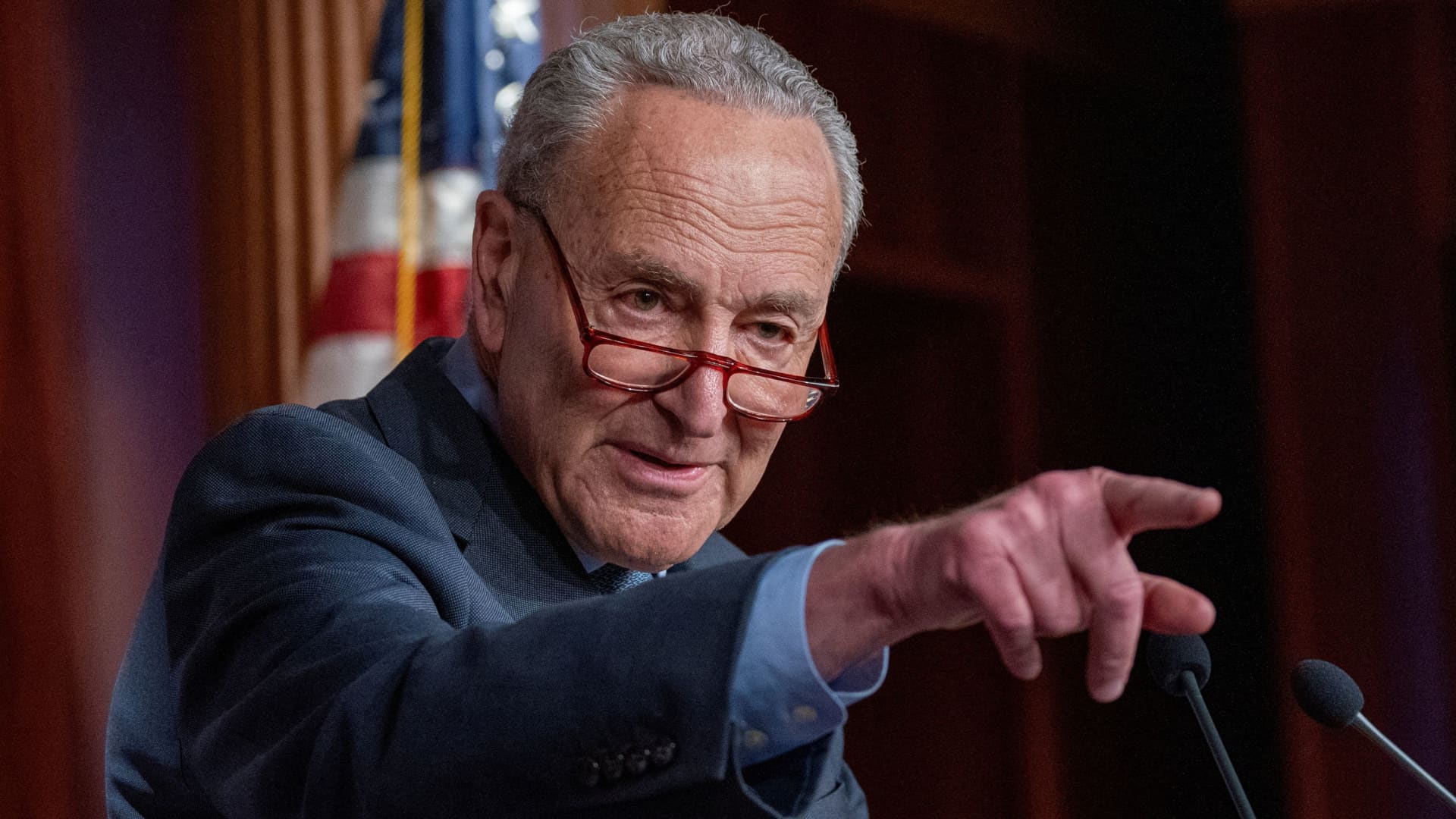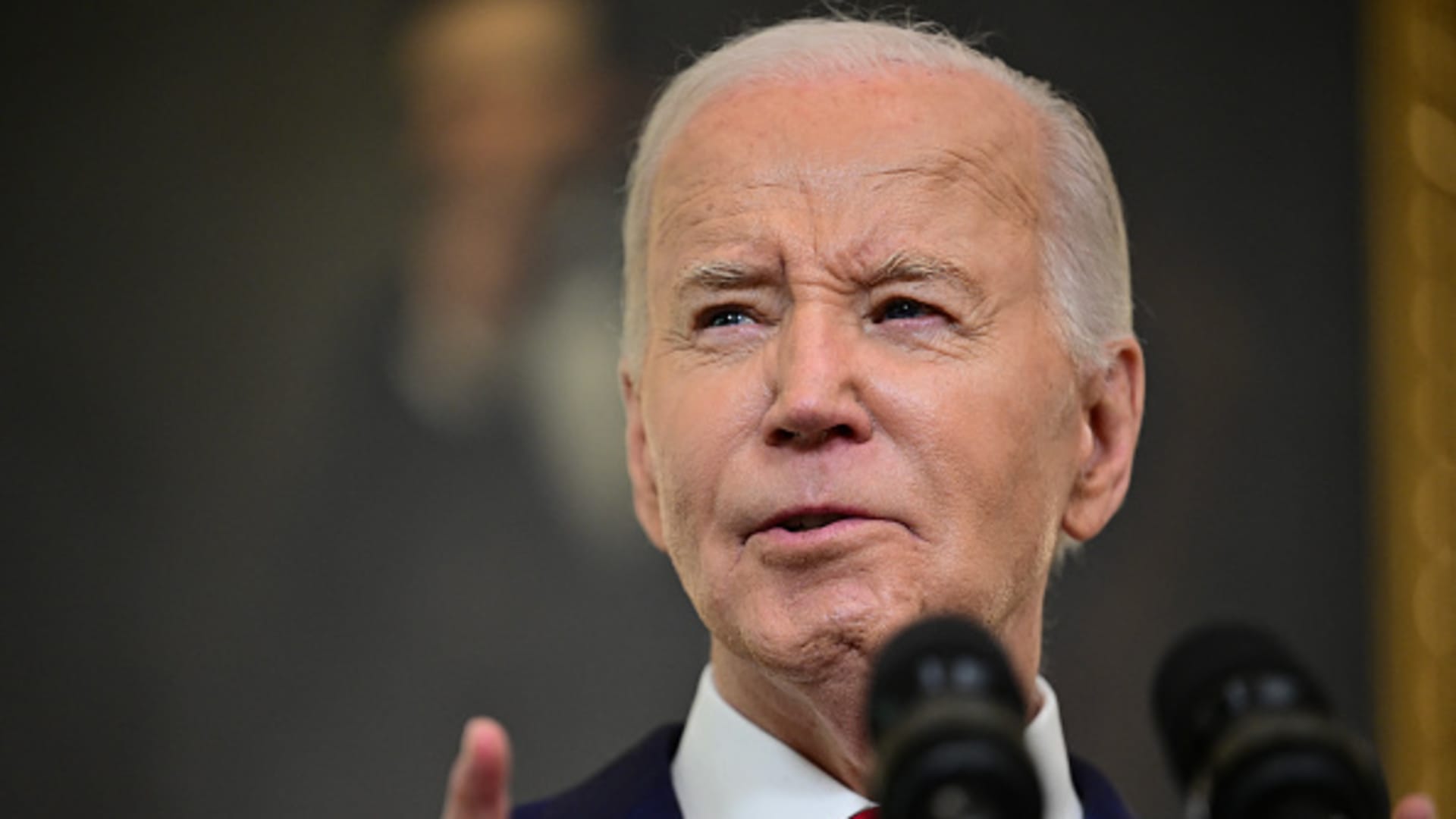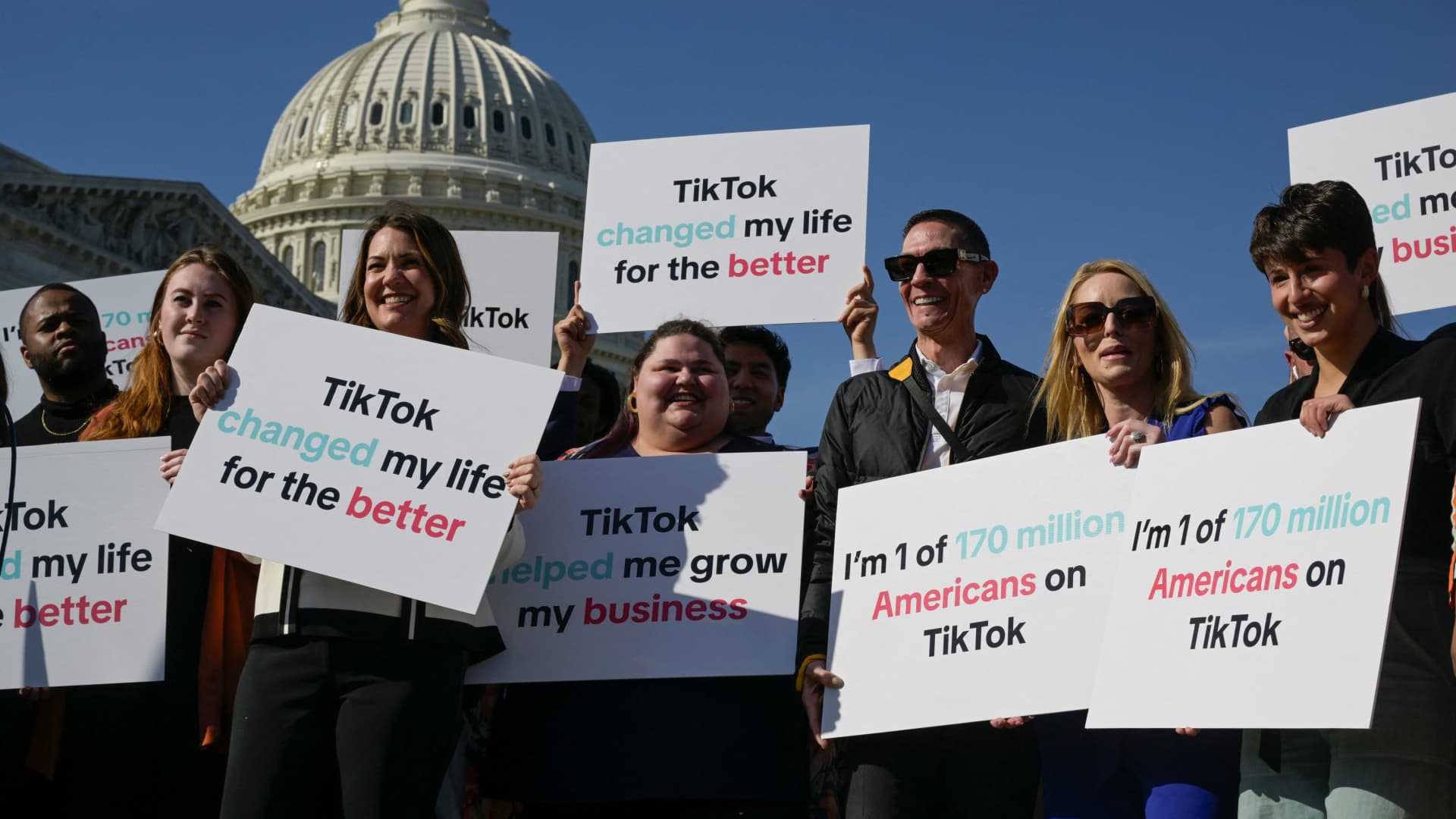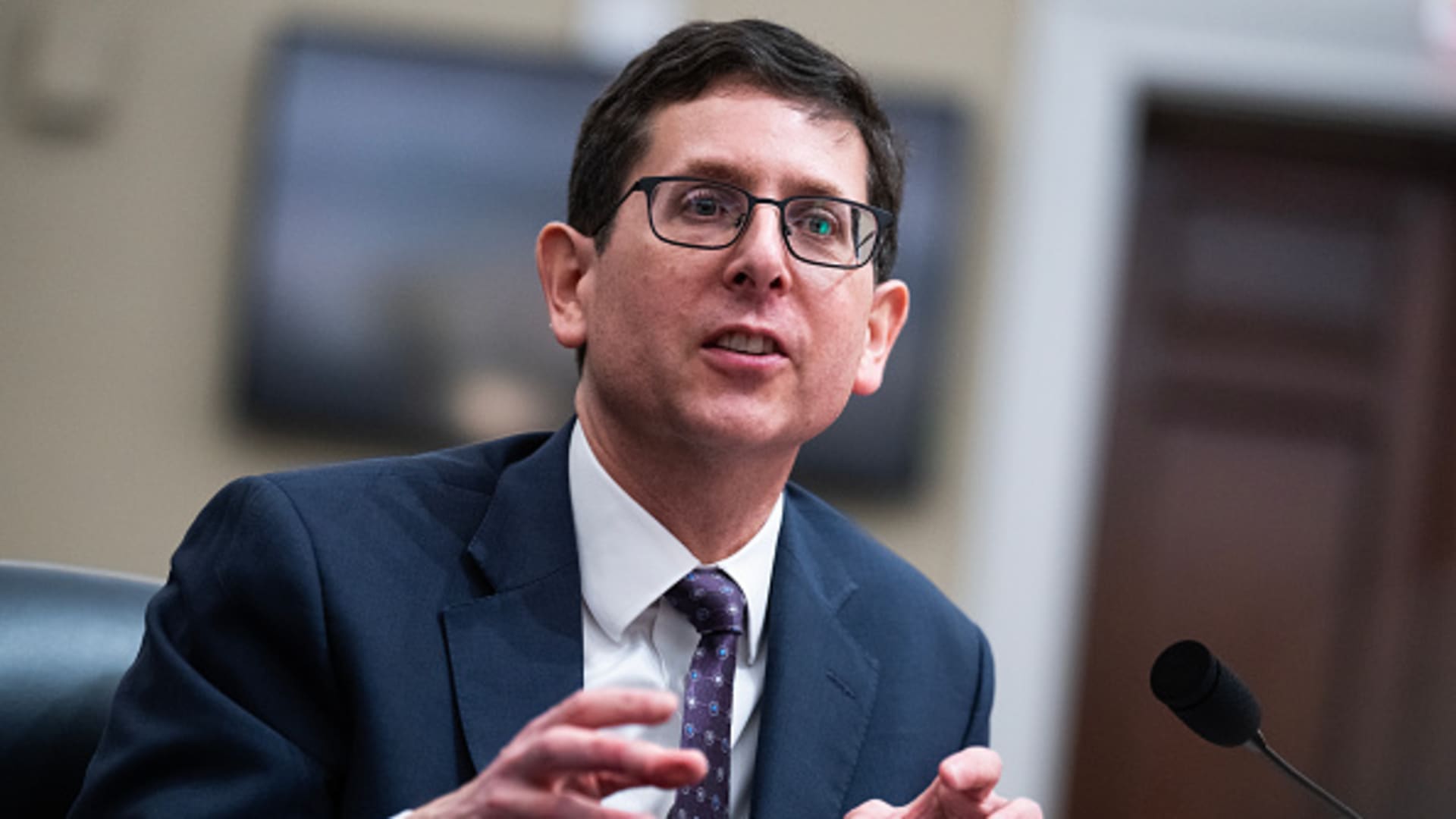Former US President Donald Trump speaks during a press conference at Mar-a-Lago on February 8, 2024 in Palm Beach, Florida.
Joe Raedle | Getty Images
Lawyers for Donald Trump asked the Supreme Court on Monday to temporarily overturn a ruling that rejected his claim that he was immune from criminal charges for trying to overturn his defeat in the 2020 presidential election.
“Without immunity from prosecution, the presidency as we know it will no longer exist,” Trump’s lawyers wrote in a request to the Supreme Court to stay a lower court’s decision.
A three-judge panel of the federal appeals court in Washington, D.C. last Tuesday unanimously rejected Trump’s argument that he cannot be prosecuted for any official acts he committed as president.
This ruling would end Trump’s efforts to dismiss special counsel Jack Smith’s case and reopen the trial in federal district court in D.C
But the panel held off taking effect of its 57-page ruling until Monday, giving Trump’s lawyers time to ask the Supreme Court to stay the case while they appeal to the highest court in the land.
In seeking the stay Monday afternoon, defense attorneys argued that the Supreme Court should “prevent yet another unprecedented and unacceptable departure from normal appellate procedures and allow President Trump’s immunity claim to be decided through the due process of law.”
Trump’s immunity claim “represents a novel, complex and significant issue that requires careful consideration on appeal,” his lawyers wrote.
Allowing a former president to be prosecuted for official acts would usher in “destructive recrimination cycles” and the threat of future indictment would “hang like a millstone around the neck of any future president,” they argued.
They also argued that the appeals court’s order would threaten “imminent irreparable harm to the First Amendment interests” of Trump and millions of voters because it would expedite a process that would “inevitably impair President Trump’s ability to appeal.” to campaign for the president.” [Joe] Biden.”
Trump has sought to delay his numerous criminal and civil cases as he runs for the Republican presidential nomination. He is currently the Republican Party’s clear front-runner and is likely preparing for a rematch with Biden.
Trump’s request for a stay puts the case on hold, at least until the Supreme Court makes a decision on whether or not to grant the request. A single judge can make this decision.
The nine-member Supreme Court includes three justices appointed under Trump, but Chief Justice John Roberts, nominated by former President George W. Bush, is tasked with handling matters from D.C
Last week’s ruling by the U.S. Court of Appeals for the District of Columbia Circuit affirmed U.S. District Judge Tanya Chutkan’s earlier decision rejecting Trump’s claim of “absolute” presidential immunity.
Protesters demonstrate in front of the U.S. Supreme Court in Washington, DC on February 8, 2024
Yulia Nikhinson | Getty Images
“For purposes of this criminal proceeding, former President Trump has become a citizen Trump, with all the defenses of any other criminal defense attorney,” said the ruling by appeals judges Karen LeCraft Henderson, Michelle Childs and Florence Pan.
“But the executive immunity that may have protected him during his term as president no longer protects him from this prosecution,” they ruled.
Trump’s lawyers have argued that the Constitution’s separation of powers doctrine prohibits courts from reviewing a president’s official actions. They also argued that the same doctrine required immunity to avoid interference with executive branch functions.
The appeals court rejected these arguments.
“Fundamentally, former President Trump’s stance would collapse our system of separation of powers by placing the President beyond the reach of all three branches of government,” the justices ruled.
They also rejected as “irrational” Trump’s claim that the Constitution only allows charges against a former president if he has previously been impeached and convicted by Congress.
Read more about CNBC’s politics coverage
During his time in office, Trump was impeached twice in the House of Representatives, but the Senate voted to acquit him both times. A majority of senators voted to convict Trump in his second impeachment trial of inciting the insurrection on January 6, 2021 at the US Capitol, but the vote fell short of the two-thirds requirement.
Smith is prosecuting Trump on four counts in the DC election case, including conspiracy to defraud the United States by attempting to overturn the 2020 results and conspiracy to prevent Congress from certifying Biden’s victory on January 6, 2021 .
Trump has pleaded not guilty to that and dozens of other charges in three other active criminal cases that he says are part of a conspiracy by the Biden administration to harm him politically.
—CNBC’s Dan Mangan contributed to this report.
Source link
2024-02-12 22:43:22
www.cnbc.com

